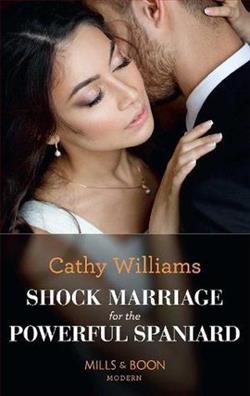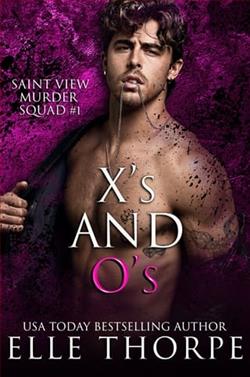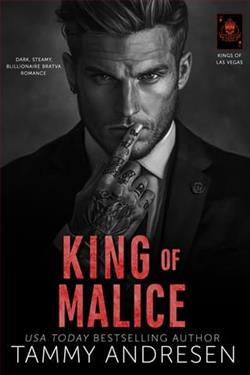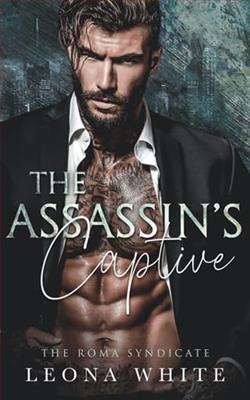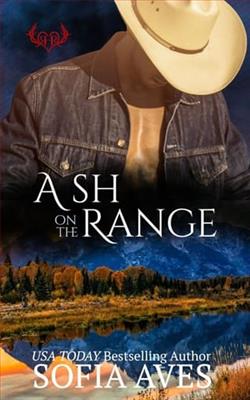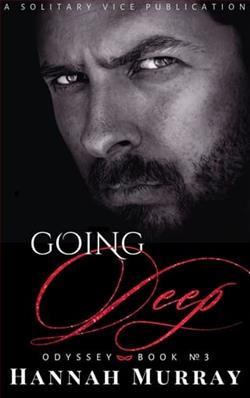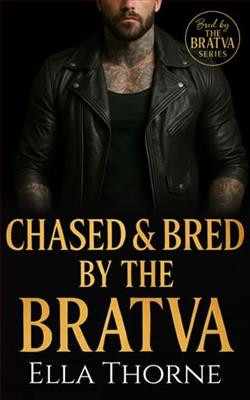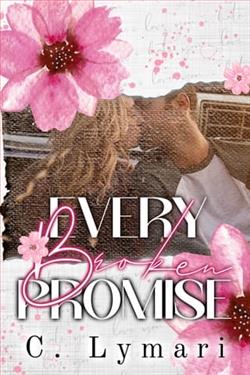Page 37 of The Bear's Heart
“Pendragon!”
That wasn’t my husband at their head, the first rays of the cold sun catching the glinting light of his mail shirt, his white horse a beacon and far too clear a target. I wouldn’t believe it. If I refused to believe, then he couldn’t die. It wasn’t real.
But it was. The Saxons, deprived of their lookouts by stealth such a short time before, were sleeping– lightly, but sleeping still. Of course, they heard the thundering hooves and the blood curdling war cries; of course, they slept with their great axes by their sides, wearing their chainmail, ready for any attack.
But they had no time to group themselves to face their enemy. The horses thundered through them, the British warriors sweeping a swathe of sharp iron, like the blades of a scythe, through their ranks. They stood in their new stirrups, swinging their swords wide and low, hamstringing some, gutting others. Heads flew, severed from thick Saxon necks, and great gouts of blood pumped like fountains as hearts beat on for seconds after their owners died.
The shouts of men, the screams of horses and the clash of metal on metal broke the peaceful quiet of the dawn. From the trees behind my horse, a flight of rooks, disturbed by the noise, took to the air with shrieks as coarse and raucous as those of the dying men. Three of the ships caught fire. Flames shot skywards, sails billowed out in the updraft caused by the heat and then collapsed in upon themselves in clouds of ash.
Was that tall warrior with the bright helmet rallying the Saxons? Was he their leader? Around him, his men formed ranks, some with shields but many without. The initial impetus of the cavalry charge was dissipated now, and our warriors fell to hand-to-hand fighting. I glimpsed Arthur’s white horse, the only one amongst his army, but then the battle closed around him again. I couldn’t pick out his helmeted head above the crowd, nor his white shield with its dark bear emblem rearing across it.
To me, watching, heart hammering with fear, the battle seemed to last forever, and yet in a trice it was over. How could something feel at the same time long and yet so short? But time has no meaning in a battle, and the sun had risen well above the horizon in the east and was rushing headlong toward those glowering clouds when at last the fighting ceased.
The taste of blood was in my mouth. I must have bitten my tongue. The familiar feel of retching came over me as the stench of blood and dying men came to us on the still morning air, and I hawked and spat.
Merlin looked at me, his face as sharp and knowing as ever.
I shook my head. “It’s the stink of blood. I can’t stand it.”
He looked away.
A group of prisoners stood gathered on the riverbank. Not many. Maybe twenty at most. The rest lay scattered across the battlefield, dead already or soon to be so. Their cries rose like the bleating of sheep, plaintive and mournful.
Men. These were men lying there dying. Real men. This wasn’t television or a film; this was reality. These were men for whom life had come to an abrupt end, men whose graves, if they ever got any, would be lost forever, their names forgotten with the passing of this day.
Down on the battlefield Arthur raised an arm and waved at Merlin and Bran.
“We can go down there now,” Merlin said. “It’s safe.”
Alezan picked her way through the fallen men. Here and there the hump of a horse rose out of the mud, one or two of them still alive. I looked away, sickened by the sight. The cries lessened. If I turned my head, I’d see Arthur’s men walking amongst the dead and dying, finishing them off with their quick knives. The wounded horses, too.
I didn’t want to see. Maybe I was like the man in the Bible, who, when he saw the wounded fellow, passed by on the other side of the road. I certainly couldn’t have been the good Samaritan.
Not that I didn’t want to help. I did. But I knew it would be futile. Or that was what I told myself. They were doomed men, just as Arthur and his men would have been, had the battle gone the other way. I could do nothing to save them. Best to let our Dumnonian warriors finish them off quickly. Death would come one way or another, and I was impotent to save them.
But the carnage drew my eyes. No matter how hard I tried to look away, to avoid the stench that rose like a miasma from the dead and dying, my gaze kept creeping back. The desolation held a fatal fascination. I’d had a friend at school who’d been obsessive about pictures of accidents. I’d stayed the night with her once and she’d whipped out a textbook of her older brother’s, who’d been training to be a doctor. She’d shown me dreadful photos of people– run over by trains, injured by machinery, disfigured in crashes. It had revolted me, yet I hadn’t been able to drag my eyes away. I felt the same now.
Men lay higgledy-piggledy everywhere, arms and legs grotesquely akimbo in the dance of death. Guts spilled out like slimy grey sausages draped about their owners’ torsos. Blood and more blood and still more blood lay in a veil over everything, even the mud where my horse trod.
I leaned over Alezan’s shoulder and threw up onto the ground.
Merlin’s hand touched my back in comfort or sympathy, or maybe just to make sure I wasn’t going to fall off into this muck of death. I straightened up, spat and wiped my mouth on my sleeve. I was a queen. I had to behave like one. That much I’d learned in the bare six months since I’d made the decision to stay.
My mount had seen all this before. With no urging from me, Alezan stepped carefully over the bodies, picking her way toward Arthur, who sat, still mounted, thirty paces from the burning boats.
He had his helmet tucked beneath his right arm, and had hooked his shield onto one of the horns on his saddle. The shield showed fresh gouges like gaping mouths, but it had withstood the battle well. Sweat plastered his dark hair, freshly cut for the campaign, to his head in short wet curls. His face was flushed and dirty, flecked with blood and bits of grey matter whose origins I didn’t want to know. Putting up a hand, he smeared the bits across his skin and a wave of sickness rose up in me again. I had to make a great effort to keep it down.
Smoke billowed our way, acrid and bitter. I coughed, but in a moment the breeze whipped the fumes round in another direction entirely, eddying like the currents of the river.
“Well fought.” Merlin slammed his hand against Arthur’s in the fifth century version of a high five. They grinned at one another like schoolboys after a rugby match.
How could they? Amidst all this death and desecration, they were happy. The differences between them and me could never have been any wider than at that moment.
My gaze traveled to the other riders. They were as dirty as Arthur, disheveled, bloody, most still with swords in hand, the blades darkened by blood. They were difficult to recognize like this because they all looked the same. Like feral dogs. White teeth flashed in filthy faces, dark hair lay slick about their heads; gore speckled their horses’ flanks.
“Well, what did you think?” Gwalchmei, the musician, spoke up, his curly brown hair matted with blood.
I couldn’t think of anything to say. My mouth tasted of dry cardboard and vomit.








